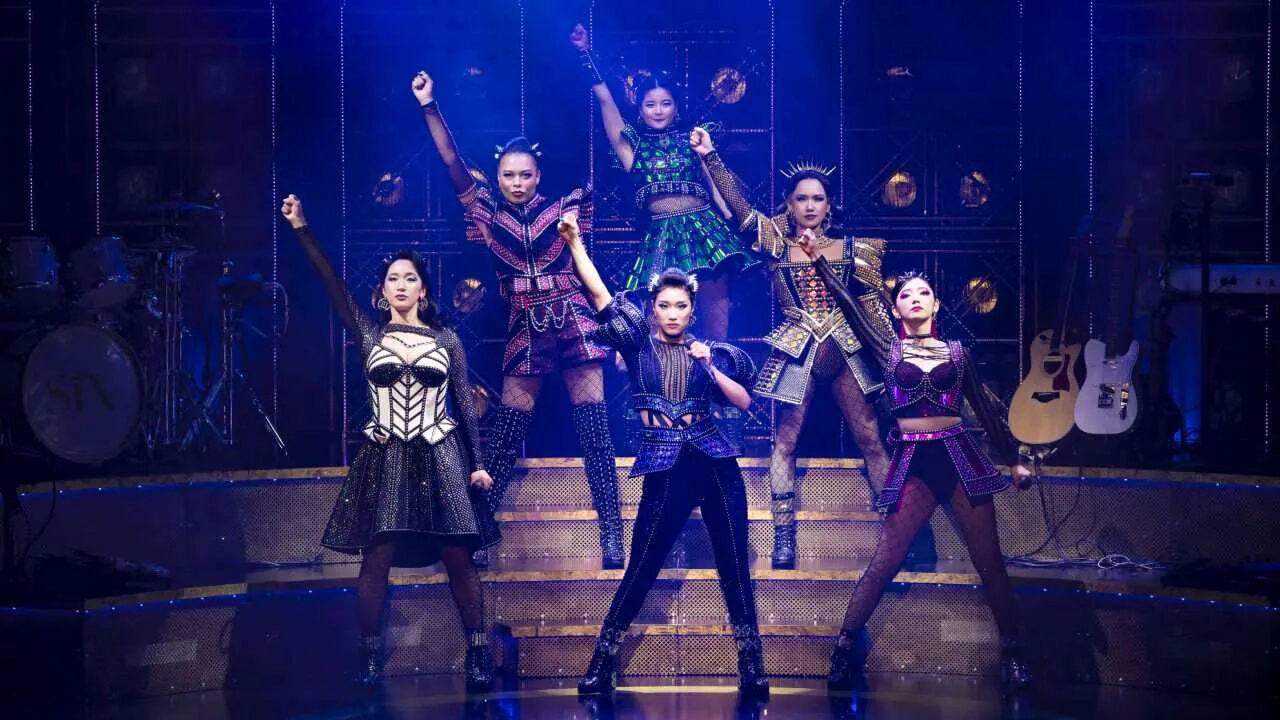SIX the Musical Japan Makes West End History
Published on 11 November 2025
In a dazzling cross-cultural takeover, SIX Japan proved that the language of defiance needs no translation.
In November 2025, something remarkable happened in London’s West End. For one week, the Vaudeville Theatre, home to the ever-popular SIX the Musical, was ruled by a different set of queens. The Japanese cast of SIX, fresh from a triumphant run across Tokyo, Osaka, and Nagoya, took over the London stage, performing the entire show in Japanese with English subtitles. It was a dazzling exchange of cultures, but more than that, it was a musical revolution in representation.
The production’s premise remained the same: the six wives of Henry VIII reclaim their stories through a pop-concert lens, rewriting history with electric wit and vocal power. But this time, their voices carried the rhythm and intonation of Japanese, layered over a language of performance that transcended translation.
Led by Sonim as Catherine of Aragon, with Meimi Tamura and Maho Minamoto alternating as Anne Boleyn, Harumi as Jane Seymour, Eliana and Marie Sugaya alternating as Anna of Cleves, Airi Suzuki and Erika Toyohara alternating as Katherine Howard, and Sora Kazuki and Ruki Saito sharing the role of Catherine Parr, the Japanese queens delivered a show that was both familiar and thrillingly new. It was the first foreign-language production of SIX ever to appear on the West End stage - a statement as symbolic as it was artistic.

A Historic Moment for East Asian Visibility
The significance of this event cannot be overstated. East Asian performers remain among the least represented groups in British theatre. Studies of West End casting in recent years show that East Asian actors occupy only around 1% of roles in major musicals - a stark contrast to other groups. Beyond the numbers lies a deeper issue: a persistent invisibility, where East Asian artists are rarely centred in mainstream British storytelling.
For that reason, this week-long Japanese takeover was more than a theatrical novelty. It was a full, headlining residency, as well as an assertion that East Asian artists belong at the heart of London’s theatre scene, not at its margins. Unlike token appearances or “special nights,” this was a full production, with the English-language SIX pausing its regular run to make room. It gave East Asian talent agency, presence, and equal footing in one of the world’s most prestigious theatrical theatres.
For every member of the cast, it marked a West End debut, turning an already momentous week into something truly historic. We at London Theatre Direct were at the launch event and witnessed firsthand the emotion behind it all: pride, disbelief, and pure joy radiating from a cast who understood exactly what this moment meant - a coronation not just of talent, but of representation too.
A Win for the West End
This moment was not just a victory for representation - it was also a triumph for the West End itself. In welcoming a full foreign-language production (complete with subtitles for access), the West End demonstrated cultural openness, creative innovation, and global leadership. It invited a broader audience: Japanese residents in London, East Asian diaspora communities, and tourists seeking art that speaks across borders.
Economically, it was a smart move too. Japan has one of the world’s most vibrant musical theatre markets, and cultural partnerships between the UK and Japan continue to grow. But more importantly, it was a moral and artistic statement. It showed that the West End could be not only a symbol of British theatre, but a global stage where art moves in all directions.
A Broader Shift in Perspective
The success of SIX Japan reflects a wider rethinking of how international theatre can function. Historically, British productions have been exported - touring globally in English, sometimes with local adaptations. This event reversed that dynamic: the world came to London, performing on its own terms, in its own language, and was celebrated for it.
For East Asian performers, it was a moment of affirmation. For audiences, it was a revelation: that a language barrier need not be a barrier to joy, emotion, or storytelling. And for the industry, it was a signpost toward a more inclusive and genuinely international future.
A Legacy to Remain
When the curtain fell on the final Japanese performance, it was clear that something had shifted. SIX the Musical Japan didn’t just entertain, it expanded the vocabulary of what the West End can be. It redefined representation not as a quota, but as an act of cultural dialogue and respect.
The West End, once a house of Henry’s, suddenly looked more like a Haus of Holbein - bold, bright, global, and gloriously diverse. The legacy? A stage that’s not just divorced, beheaded, live, but reborn - more inclusive, more curious, and just a little more revolutionary.


